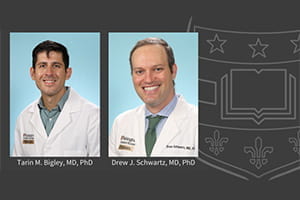We study how viruses disrupt the immune system and contribute to autoimmune disease.
Millions of people suffer from autoimmunity and the prevalence continues to rise. For most autoimmune diseases, the cause is unknown but viral infections are suspected to play a role. Despite this link, there is limited data demonstrating a direct causal role for viral infections in autoimmune disease. We have found that neonatal infection with roseolovirus induces autoimmunity by disrupting the processes that normally limit the development of autoreactive T and B cells. Our initial studies suggest that this occurs due to infection of the thymus.

Our lab is focused on understanding the mechanism by which roseoloviruses induce autoimmunity. We are also studying other thymotropic viruses to understand if viral disruption of immune regulation is specific to roseolovirus or might also occur after infection with other viruses. Finally, we are using immunologic tools and molecular virology to understand what long-term impact thymic infections have on immune cells, as well as host virus interactions that alter immunologic tolerance.
